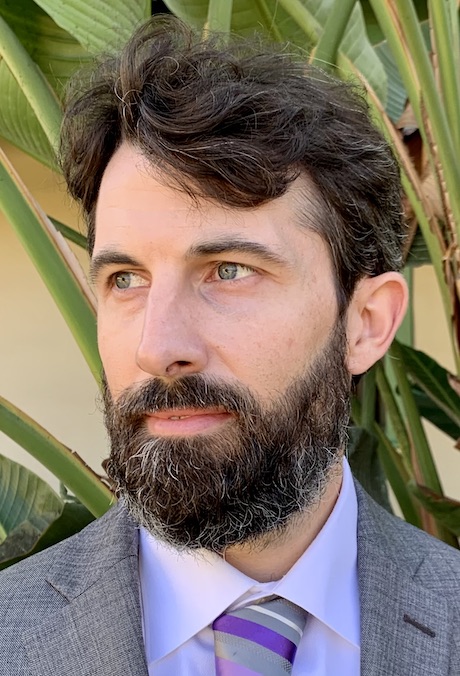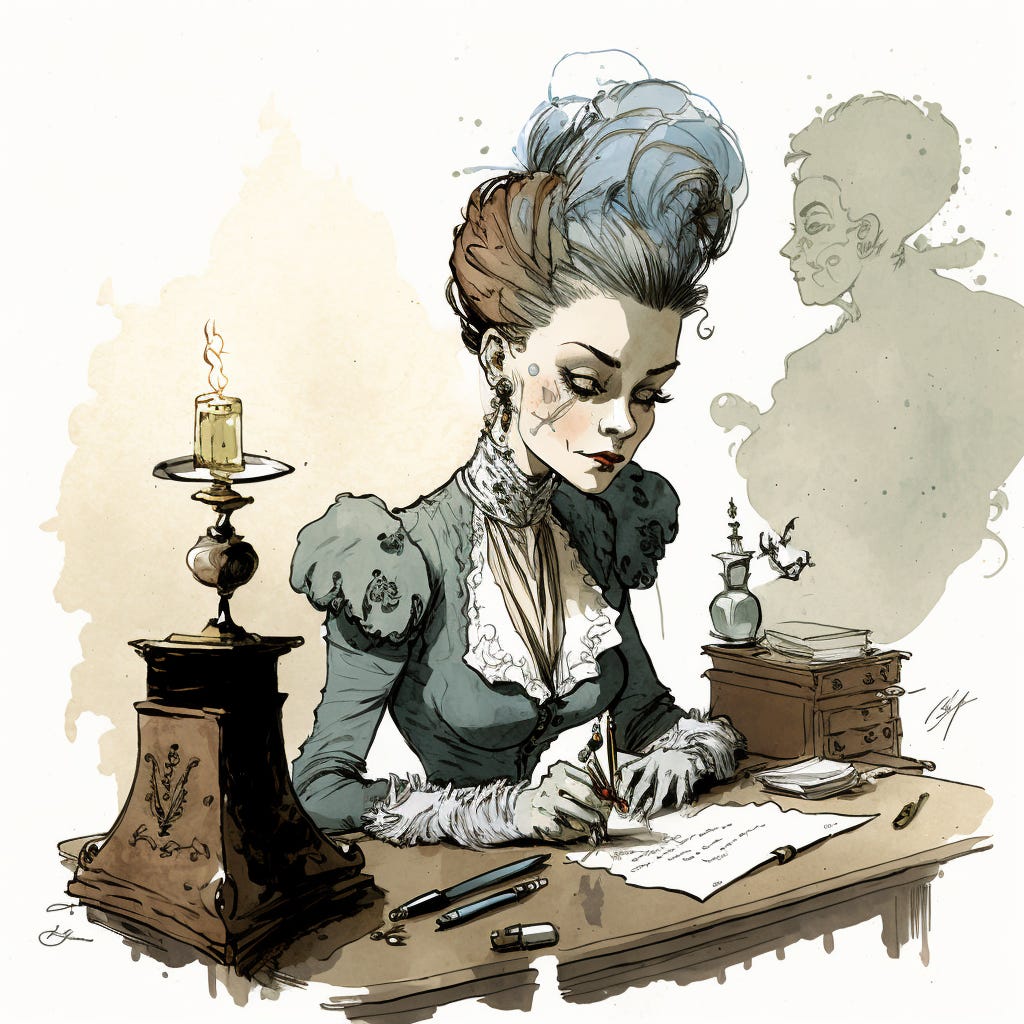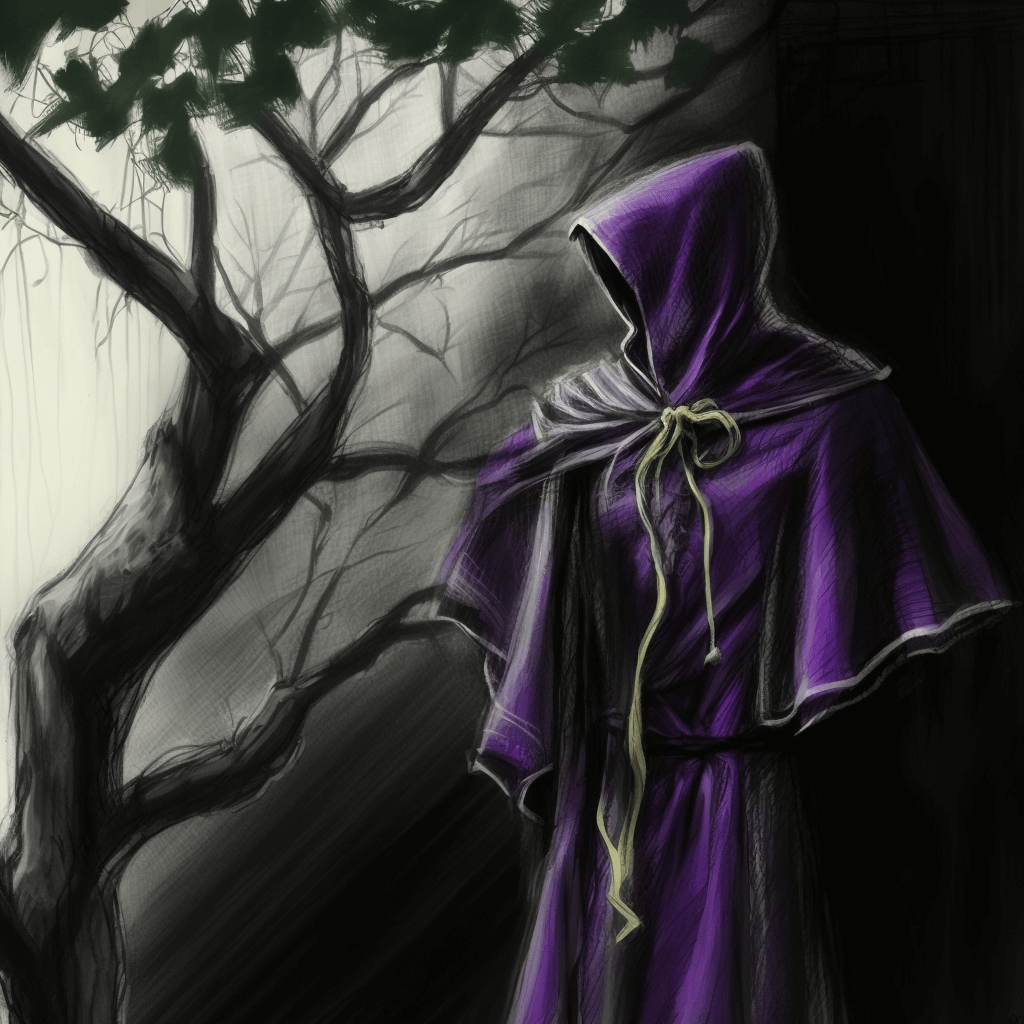A.B. Greene on “Wash Away the Plague”

Q&A with A.B. Greene
A.B. Greene’s story, Wash Away the Plague, is a thrilling and heartfelt journey into the bureaucracy — and sewers — of Amalcross. He hosts The Naked Man podcast and publishes his own newsletter, Wanderings. Creator/co-editor Benjamin Reeves spoke with the author about his inspiration for the story, his love for underdogs, and his fantastical relationship with sports.
The conversation has been edited for length and clarity.
Benjamin Reeves: What inspired this story?
When I was asked what I was interested in exploring, the Blue Plague stood out, maybe because we’re in a plague ourselves. The reconstruction from the Great Quake and the arrival of the Blue Plague felt like really interesting timing to me, and they were obviously connected because in the lore it was the wood [for rebuilding the city] that had brought the mosquitos. I just love the idea of rebuilding bringing the plague. In my mind, I was seeing a political state where rebuilding had probably screwed over the poor in Pauper’s Notch. Let’s go into this more impoverished neighborhood, and this is definitely an underdog story.
I love a good underdog story.
Growing up, I had this mentality of always loving losing teams. Also I love the idea of just going into the sewers.
Your story felt a bit like if someone had written Chinatown, but set in the Distant Reaches.
In terms of a short story, it was hard to completely have this really big, investigative thing and more of the seedy bureaucracy in there. But my hope was that we would know that this town makes it hard to help the town. That’s what the world is. It’s so frustrating to me on a daily basis that, like, the infrastructure is there to prevent us from helping.
It feels really relevant to the world we’re living in right now.
I was like, let’s get magic in there. Let’s get all these different things. But yeah, it became more about bureaucracy and science.
We’re really interested — throughout this project — in the tension between industry and magic and technology in an early industrial world, and you really went with that.
It feels sort of timeless, and that’s a cool place to be. You know, this industrial period can be anything. So, what are roads like? Do they have road signs or is it that just me assuming it’s the same as our world? So I was catching myself and remembering, okay, we can break every rule here.
What were the biggest influences on your writing?
I think my first fantasy series was Redwall by Brian Jacques. I still remember the feasts: Thirteen pages talking about the berries and the nuts and these mice. And the battles were so intense. It was basically kid Game of Thrones, but with animals. And animals are the coolest thing. There were badger warriors!
I remember the badgers vividly.
Badgers were always very badass, right? The idea of a badger fighting a mouse is like, I mean, there’s something ridiculous about that, but also really cool. The underdog moment of a mouse actually, maybe winning. It was such a sprawling epic in my mind. And later on, in high school or college, there’s this book called The Art of Fielding by Chad Harbach that I really loved. It just really resonated, like the failures of playing sports and the anxiety. That was me, for sure.
I just watched the Mets get brutally destroyed by the Padres. And you’re a Seattle fan. Are you watching the Mariners?
Yeah, I wrote a piece in my newsletter about how I haven’t seen them play in the postseason since I was thirteen years old, basically when I was reading the books I’m telling you about. As a fan of the Mets, I’m sure you can commiserate.
I don’t want to be the mouse fighting the badger, but this postseason is a real underdog story for sure.
Yes. And it’s weird how that really inspires me. It’s a very, sort of, guy thing to put yourself into a sports scenario. But I’ve been thinking a lot about how that is in some ways one of the few places where men can experience joy and show joy and where I can be emotional or translate my dreams onto what’s happening. I think the best times in my life have happened when sports team I follow are doing the best. I don’t want that to be the case. It seems like a codependent relationship, but it’s true. When the Seahawks won the Super Bowl, that was one of my more formative years. It was the second year after I moved to LA, and I feel like I rebooted my life and started saying “yes” to things I never would.
There’s a fanciful connection to sports sometimes. When the Mets lost on Friday, it rained for a moment right after the final out, and it was like all of New York was weeping. The city was crying.
There is magical thinking in sports. And you can believe, especially — well, I don’t know if Yankees fans believe.
They’re a bit soulless. They’re like wraiths.
Yeah, I don’t know if they have the same sort of fantasy elements, although maybe there’s this tall-tale mythology. Aaron Judge is another version of Paul Bunyan. There’s something there that would be their fantasy. Where it’s just these legends. But I don’t feel like Yankees fans can ever feel like questioning whether they will lose or have hopelessness. I don’t now if that’s in their lexicon.






